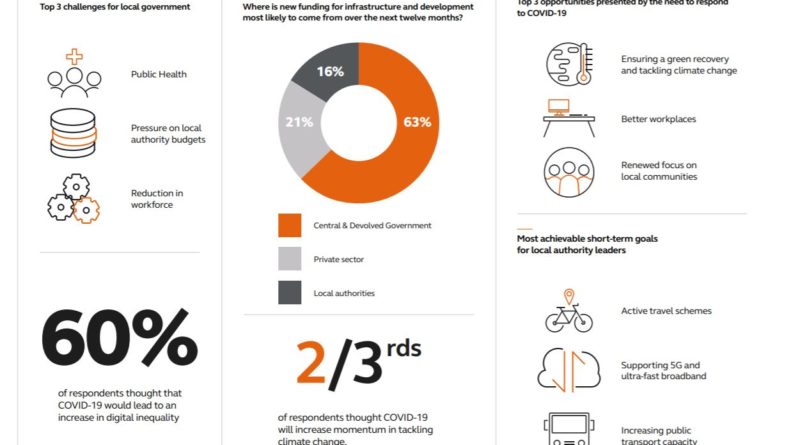Build sustainable transport into recovery, business leaders and public urge
Local authorities have been urged by business leaders and individuals alike to deliver on sustainable transport provision and micromobility, according to a new study of public and private sector attitudes.
The call comes on the back of research carried out by global design and consultancy firm Arcadis, which polled the thoughts of 1,700 organisations and individuals this summer. Investment in ‘green infrastructure’ now ranks in the top three spend priorities in the minds of those businesses and individuals polled. Just 5% believe no action is required here.
In its headline findings, it has been concluded that people want not only a green recovery, but also a more inclusive and affordable reality. Interventions to protect the environment, public health and local amenities were also strongly desired.
As with other studies, priorities vary widely between demographics, but for 18 to 24-year-olds it is an investment in enabling more green transport that is most desired. For over 65s it was refurbishing homes for energy efficiency. Across Wales and the Midlands, nearly 25% of those surveyed wanted improvements to walking and cycling infrastructure.
The findings have led the the release of a five point plan that is designed to illustrate to local authorities what those in the private sector feel is necessary for communities to evolve and what business are more likely to lend support to in future. These five ‘levers’ for a shared recovery include:
- Embracing the principles of 15-minute communities
- Creating the right homes in the right places
- Re-imagining town centres and high streets
- Putting digital inclusivity at the heart of the health and wellbeing agenda
- Actively exploring new forms of mobility
The 15-minute community concept has been deployed in various shapes and sizes in cities like Melbourne, Australia; Portland, USA and Waltham Forest in London. These are centred around the principle of all essential amenities being within a 15 minute journey of home using sustainable transport such as walking, cycling or public transport. The concept was also a key pillar of Paris Mayor Anne Hidalgo’s re-election campaign.
A Deloitte survey conducted in June 2020 suggested 59% of consumers in the UK used more local stores and services during lockdown. The reduction in high street footfall was less notable in smaller towns and cities over larger ones.
Mark Cowlard CEO of Arcadis UK and Ireland said: “The spread of COVID-19 has dramatically changed how communities live, travel and behave. From breaking old certainties to the acceleration of new trends, it has forced us to quickly adapt to new ways of living.
“While some of the longer-term effects may take years to be fully understood, there is a now a pressing need for action to rebuild our economy and tackle wider societal challenges. We must work to understand the new landscape and the opportunities it could bring across business, public sector and political leadership. Most importantly, we have the chance to radically re-think how we view our communities and live our lives.
“We hope that through close collaboration between all groups involved in building back better, the benefits of the post-COVID recovery will extend well beyond simply bringing GDP back to pre-pandemic levels, but will also embed sustainable long-lasting change in our towns and cities, and for the people who live within them.”
Arcadis is now calling for greater collaboration between local authorities and the private sector to ensure the unique opportunity for lasting positive change to come from this crisis is not passed over. At the time of writing, sustainable transport options are rapidly falling away against a return to normal transport habits.
Likewise, the report suggests that new development should build sustainability in to its very core, not only reducing but actually going beyond net zero in carbon reduction, whether that’s through transport provision attached or things like waste water reduction.
“The pandemic may have taken the climate debate off the front pages, but it will be back with bigger and bolder ambitions. As we look to forge a successful post-COVID recovery, it is crucial local decision makers, business leaders, and developers embrace this sea change and not only build back better, but build a healthier, greener and more inclusive society,” added Lord Barwell, Former Chief of Staff to the Prime Minister and Housing and Planning Minister.



